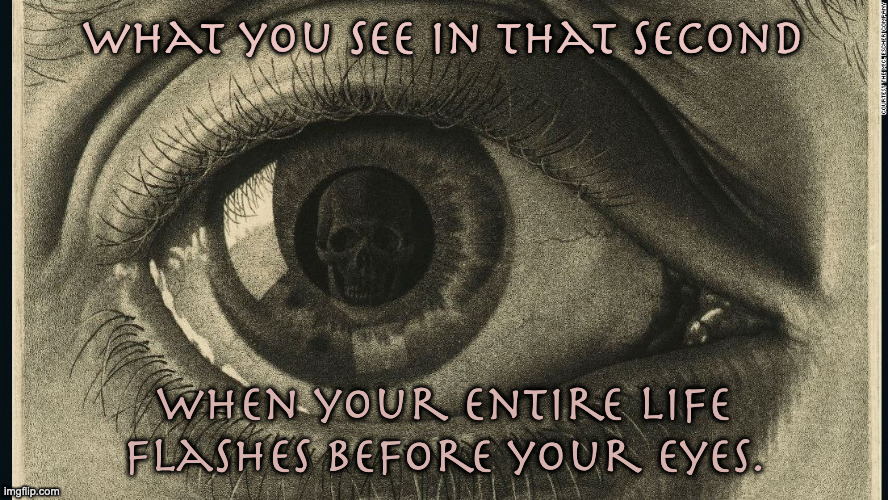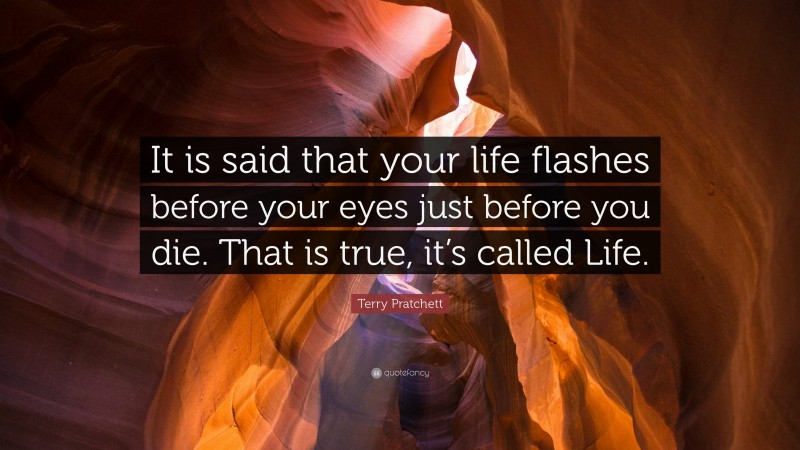
The study of how the brain perceives the passage of time is no longer just the work of philosophers. And in this experiment, that is exactly the point.
WHNE YOUR LIFE FLASHES BEFORE YOUR EYES FREE
The terrifying free fall will last less than three seconds, but to me it will feel much longer. This contraption is called the Suspended Catch Air Device, but the folks at the Zero Gravity Thrill Amusement Park in Dallas prefer the more colloquial “Nothin’ But Net.” That’s because when the operator releases my rope, I will fall, untethered, until I plop into a modified circus net. I am about to become the fastest-moving man in science, and I can barely keep my breakfast down. Four massive steel girders support my weight, and I can see that I’m the highest object around for miles. “Something we may learn from this research is: although our loved ones have their eyes closed and are ready to leave us to rest, their brains may be replaying some of the nicest moments they experienced in their lives.A few moments ago, I was strapped into a harness and winched 150 feet into the air. It is indescribably difficult to deliver the news of death to distraught family members,” says Zemmar in a press release.

“As a neurosurgeon, I deal with loss at times. The patient who died had epilepsy, which can alter gamma wave activity, per Live Science’s Harry Baker.ĭespite the limitations of studying a single case, the results built on a 2013 study in rats that reported similar brain activity patterns before and after death, leading some to speculate that memory recall could be a universal experience of dying mammals. "So that was extremely surprising for us to see."īecause this phenomenon has only been observed in a single case so far, Zemmar and his colleagues caution against assuming brain activity is the same for all people upon death. "Surprisingly, after the heart stops pumping blood into the brain, these oscillations keep going," he tells Insider. And the patient's brain activity didn’t immediately stop when he was declared dead. “Through generating oscillations involved in memory retrieval, the brain may be playing a last recall of important life events just before we die, similar to the ones reported in near-death experiences,” Zemmar says in a news release. Scientists say they were particularly intrigued by the presence of gamma waves, which suggest the man’s brain may have been replaying memories from throughout his life.

Researchers recorded both high-frequency gamma oscillations as well as slower-frequency theta, delta, alpha, and beta oscillations. Different types of neural oscillations, also called brain waves, are involved in different brain functions. No healthy human is going to go and have an EEG before they die, and in no sick patient are we going to know when they're going to die to record these signals," study author Ajmal Zemmar, a neurosurgeon at the University of Louisville in Kentucky, says to Insider’s Anna Medaris Miller.įor roughly 30 seconds before and after the man's heart stopped beating, the scans showed increased acitivy in parts of the brain associated with memory recall, meditation, and dreaming. "This is why it's so rare, because you can't plan this. Such scans had never before been captured on a dying individual. The elderly man had an unexpected heart attack and died during the procedure and, in accordance with the patient’s Do-Not-Resuscitate status, the doctors did not attempt any further treatment and the man soon passed away, reports Ed Cara for Gizmodo.īecause the EEG machine kept running, doctors got a glimpse into the man’s brain activity at the end of his life. The team was performing a test that detects electrical activity in the brain, called an electroencephalogram (EEG), to learn more about what was happening during his seizures. In the research published last week in Frontiers in Aging Neuroscience, doctors took brain scans of an 87-year-old Canadian patient with epilepsy. This first-of-its-kind study suggests we may experience a flood of memories when we die. When scientists recorded the brainwaves of a dying man, he appeared to go through a sudden flash of memories seconds before and after his heart stopped beating.


New research is revealing what happens in the brain during our final moments of life.


 0 kommentar(er)
0 kommentar(er)
